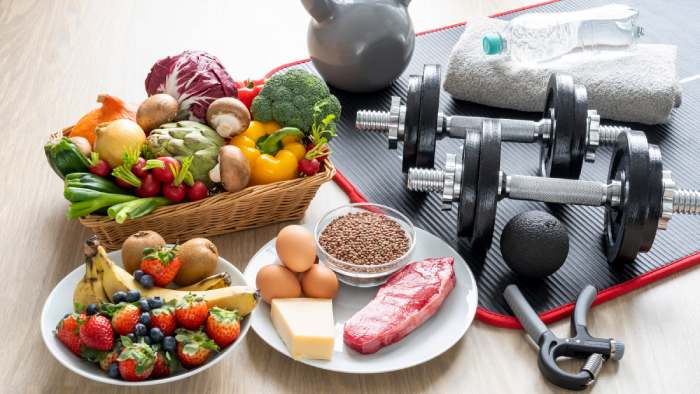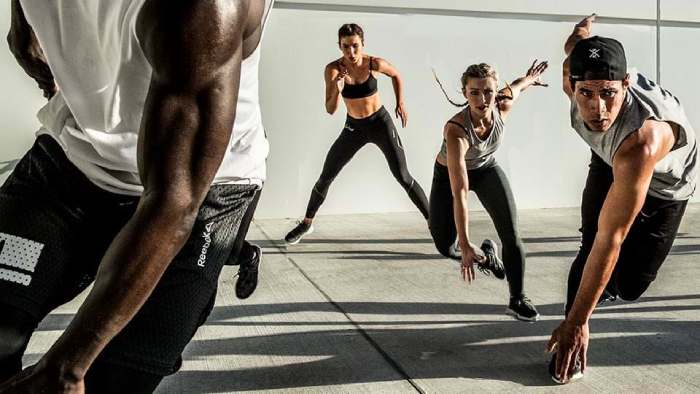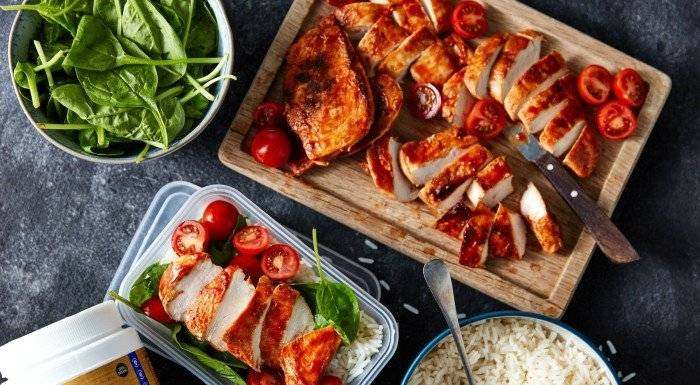Are you wondering how long to wait before working out after eating?
It’s an important question, as waiting too long can reduce the effectiveness of your workout, and working out too soon can lead to digestive problems.
Studies have shown that the ideal time to wait is between 30 minutes to two hours, depending on the intensity of exercise and the type of pre-workout meal. Read on to find out the best time to work out and when to skip exercise altogether.
Contents
- 1 Time Requirements: Determining the Ideal Wait Time
- 1.1 Benefits of Waiting: Allowing Digestion Before Exercise
- 1.2 Exercise Intensity: Considering Intensity Levels and Timing
- 1.3 Pre-Workout Meal: Choosing the Right Foods Before Exercise
- 1.4 When to Skip Exercise: Instances Where Waiting Might Not Be Enough
- 1.5 Frequently Asked Questions:
- 1.6 Conclusion:
Time Requirements: Determining the Ideal Wait Time
You’ll need to give yourself at least 30 minutes before working out after eating. This is generally the timing guideline experts suggest to allow your food to digest before physical activity.
Depending on the size and type of meal you had, you may need to wait up to two hours before exercising. Eating smaller meals more frequently throughout the day can help ensure you have enough energy to work out while allowing your body to digest properly.
Be mindful of your meal timing and frequency when planning your workouts. Aim to have a light snack at least 30 minutes before exercising and avoid heavy meals right before. Doing so can help ensure you have the energy you need for your workout and can help prevent indigestion.
Benefits of Waiting: Allowing Digestion Before Exercise
Taking the time to wait before working out can provide numerous benefits to your body.
Stretching muscles after eating can help them become more flexible and prepare them for the workout. This extra time is also beneficial for temperature changes in the body, which can help with digestion and other bodily functions.

Additionally, waiting to work out can help to prevent muscle cramps, fatigue, and dehydration. Not to mention, your body will benefit from the extra time to absorb the nutrients from your meal, which will help you to have more energy during your workout.
Waiting to work out also gives your body time to rest and reset, which can help you stay focused and motivated.
All in all, taking the time to wait before working out can benefit both your body and your workout.
Exercise Intensity: Considering Intensity Levels and Timing
The intensity of your workout should be considered when determining how long to wait after eating. When exercising at a high intensity, your body will need more time to digest the food you have eaten.
For example, if you’re planning a HIIT workout, it’s best to wait two to three hours after eating. However, waiting an hour or two is generally enough if you’re doing light stretching or warming up exercises.
To maximize performance and ensure your body is taking full advantage of the nutrients in the food you just consumed, here are some key tips:
- Allow for at least one hour of digestion before starting a light workout
- Wait two to three hours after eating before doing any high-intensity exercises
- Make sure to properly warm up and stretch before exercising to prevent injury
- Avoid eating close to your workout to allow your body enough time to digest the food.

Pre-Workout Meal: Choosing the Right Foods Before Exercise
Once you’ve allowed your body enough time to digest your food, it’s important to consider what you’ll be eating for your pre-workout meal. Eating the right foods before a workout can give you the energy and nutrients to perform your best.
To get the most out of your workout, prioritize nutrient-rich foods that will help maintain your hydration levels while providing the energy needed to exercise. Carbohydrates like oatmeal, whole grain toast, and bananas are good pre-workout fuel sources, as are proteins like eggs, peanut butter, and Greek yogurt.

Staying hydrated during your workout is also important, so include water or a sports drink in your pre-workout meal. Eating a healthy pre-workout meal can help you maximize your exercise performance.
When to Skip Exercise: Instances Where Waiting Might Not Be Enough
If you’re feeling overly full or bloated after eating, it’s best to skip your workout and take a break. To maintain health and wellness, however, it’s important to be mindful of when to exercise and when to take a rest.
Here are a few tips for when it’s best to skip exercise:
- Stay hydrated: Drink plenty of fluids throughout the day to stay hydrated.
- Listen to your body: If you’re feeling pain or discomfort, take a break and wait until it passes.
- Breathing techniques: Practice deep breathing exercises to relax your body and mind.
- Relax: Relaxing activities such as stretching, meditation, or yoga can help ease discomfort.
Frequently Asked Questions:
When weightlifting or doing cardiovascular exercise, eating the right foods before a workout is important. Eating a light snack that contains carbs and protein can help fuel your body and give you energy. Choose foods like yogurt, a banana, or a peanut butter sandwich.
It’s generally okay to exercise on an empty stomach, but it’s important to maintain proper hydration levels. Make sure to have a meal a couple of hours before your workout for the best performance and energy. Timing your meals correctly will help you reach your goals.
Pay attention to your body’s signals if you’re doing intensive cardio or strength training. If you’re feeling lightheaded, dizzy, or out of breath, it may be a sign that you’re pushing yourself too hard. Take a break, drink some water, and re-evaluate.
Are you feeling bloated after eating? Exercising too soon afterward can result in your body not burning calories efficiently, so be aware of the risks. Take the time to let your body digest to ensure you burn calories effectively.
After eating, avoiding intense stretching exercises and vigorous activity is best. Be sure to stay hydrated, too. These habits help ensure proper digestion and prevent any discomfort.
Conclusion:
Waiting to exercise after eating is a balancing act. Every person’s body is different and requires different amounts of time to digest food. To get the best results, be mindful of your body’s needs and the intensity of your workout.
When in doubt, think of your body as a finely tuned machine – too little fuel and it won’t run; too much and it’ll get clogged up. Exercise in moderation, and you’ll be rewarded with a healthier, more energetic you.

Hello, I’m Ravindra. Over the years, I’ve immersed myself deeply into the world of fitness and health, transforming both my body and mind. Writing has allowed me to share my journey, insights, and expertise with those just starting out and seasoned fitness enthusiasts alike. Beyond just routines and diets, I believe in inspiring others to adopt a holistic approach to well-being.
